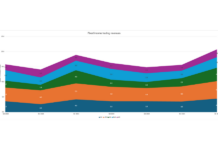Corporate bond inclusion is going to be on the agenda for this year’s Index Advisory Council, Bloomberg has confirmed, following the inclusion of Chinese RMB-denominated government and policy bank securities which began to be added to the Bloomberg Barclays Global Aggregate Index in April 2019.
The decision of whether to include bonds sits in the hands of Bloomberg, and there are still a number of hurdles to be overcome.

“The primary task for corporate bond inclusion is for global rating agencies to become involved in the market; global investors will be comfortable with Fitch, Moody’s and S&P,” says Steve Berkley, global head of indices at Bloomberg. “One of the things that has to be defined is ownership of companies in China. Are they corporations, or government owned, or hybrids? We will need clarity on points like that so they can be classified correctly. So there is work to do.”
Trading volumes on Bond Connect, the system of mutual market access between China and Hong Kong are growing well. By the end of June 2019, Bond Connect reported it had onboarded 1038 investors, up 106% from 503 investors at the end of 2018. Total trading volume rose to RMB 172.2 billion in June 2019 from RMB 158.6 billion the previous month. Both Bloomberg and market operator Tradeweb offer access to the Bond Connect platform for investors.
The addition of trading for derivatives and repurchase agreements (repo) have been mooted, which are expected to increase liquidity further.

“Going forward, we are very confident that derivative and repo products will be developed,” says Bing Li, head of Greater China at Bloomberg. “We’re hearing strong demands from the investment community on repo for example, and people are also asking how they can get more index-linked products to enhance liquidity.”
In July global investors were reported to be net buyers of Chinese bonds for RMB 36.7 billion according to Bond Connect with policy financial bonds, negotiable certificates of deposit (NCDs), and Chinese government bonds in focus with turnovers of RMB 81.0 billion, RMB 54.3 billion, and RMB 27.4 billion, respectively, accounting for 47%, 32%, and 16% of monthly trading volume.
Adding Chinese bonds to the Bloomberg Barclays Global Aggregate Index began in April and is being phased gradually in order to support issuers of index-based products acquiring the relevant instruments.
“Putting securities that investors couldn’t purchase into the index doesn’t do anybody any favours,” says Berkley. “That’s why we phased in, to avoid disruption and over time operational concerns have cleared up.”
He says that when fully included, China will be approximately 6% of the global aggregate index, which is currently a US$54 trillion index.
“The rules for inclusion are the same but every month we update the percentage weight of each individual bond,” he explains. “We take the market value, which as of July we multiply by 0.2% and next month we’ll multiply it by 0.25% and so on.”
As authorities become comfortable with the level of engagement that Bond Connect has achieved, Li is positive that changes to support investors – such as adding new products – could be supported quickly.
“As far as repo goes, I think the timeframe for that will not be lengthy, demand is strong and repo is a significant product for supporting fixed income liquidity,” he says.
Berkley says that the advantage of index inclusion has already acted as a catalyst on that front for investors to step into the Chinese market.
“Once firms engage and have buttoned down how they can access Chinese securities they can overweight – if they feel there is real value – or underweight – if they feel there isn’t – but when you look at the performance differential between China and other markets and the yields that are currently available that creates an opportunity for investors that didn’t exist prior to the inclusion on the index,” he says.
©Markets Media Europe 2025


























